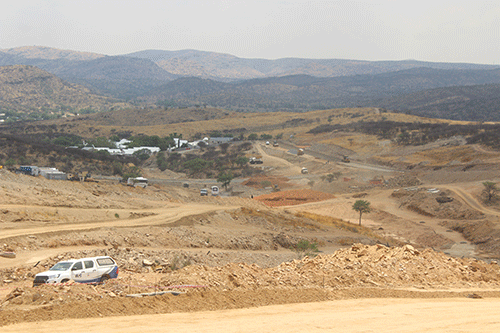In a quest to fight the escalating housing backlog in Namibia, a much-awaited housing project in the leafy suburb of Auasblick is on track after being launched on Friday.
The project initially experienced funding delays, but the Development Bank of Namibia and equity from investment house Mergence, on behalf of the GIPF, came to the rescue and availed N$134 million.
The project is being developed in two phases: Phase one includes 118 erven, of which 114 are single residential erven, while the remaining land is designated for townhouses and businesses.
The single residential units and the townhouses will cater for middle-income and upwards buyers seeking a secure and attractive living environment close to the city.
The main contractor, Namibbeton, commenced work on phase one in August 2021.
Windhoek Consulting Engineers and Hangala Properties are the engineer and project manager, respectively.
The project oversight is being exercised through a project committee, which includes key stakeholders, including representatives from the City of Windhoek, the developer, financiers and the project engineer.
Sinco Investments Sixty One (Pty) Ltd, trading as PPH Auasblick (developer), signed a Public-Private Partnership (PPP) development agreement with the City of Windhoek in 2017 to develop services and infrastructure for a 57-hectare housing development at Auasblick Extension 1.
Sinco is majority-owned by the Hangala Group, with other shareholders being Preferred Investment Property Fund, Paua Properties and Zeal Properties.
Phase one pre-sales were launched in November 2019 – and despite the Covid pandemic and related disruptions – almost all erven have been subscribed to.
At the launch on Friday, urban and rural development minister Erastus Uutoni urged the private sector to continue coming on board to help government in fighting the housing backlog.
He stated that the ministry is revising the National Housing Policy, as “it was not very clear and needs some amendments to make sure it speaks to the reality”.
The project will create about 120 jobs during construction.
Meanwhile, deputy Windhoek mayor Joseph Uapingene said the City is committed to providing serviced land and delivering housing to its inhabitants. He further praised the PPP, saying this approach should be embraced and practised more regularly in the housing sector.
At the same occasion, executive chairman of the Hangala Group and chairman of Sinco, Leake S Hangala said phase two pre-sales will start mid-November this year. He added that politics, bureaucracy and indecisiveness are some impediments in Namibia’s housing sector.
On his part, the Government Institutions Pension Fund (GIPF)’s CEO David Nuyoma stated that the fund is committed to funding the real economy within Namibia, of which bulk infrastructure for land servicing is an integral investment for socio-economic impact. The Auasblick project is indeed an exemplary transaction in that it has enabled risk-sharing amongst investors, he added.



